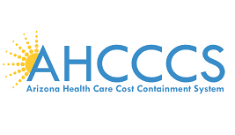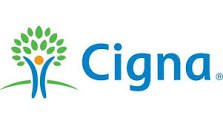Unveiling TMS Therapy
TMS therapy, also known as Transcranial Magnetic Stimulation, represents a groundbreaking advancement in mental health treatment. By harnessing magnetic fields to stimulate nerve cells in the brain, this innovative procedure offers a non-invasive approach to addressing depression and other mental health conditions. The efficacy and safety of TMS therapy have propelled it into the spotlight as a promising alternative for individuals seeking relief from various mental health challenges.
Exploring Magnetic Stimulation
Understanding TMS Therapy
TMS therapy operates by delivering magnetic pulses to specific areas of the brain, which in turn stimulate nerve cells. This stimulation is believed to positively impact the brain’s neurotransmitter levels, particularly those related to mood regulation. By targeting these neural pathways, TMS therapy offers a non-invasive and precise method for addressing mental health conditions such as depression.
Benefits of TMS Therapy:
- Non-invasive nature: Unlike traditional treatments, TMS therapy does not require surgery or sedation, making it a safer alternative with minimal risk of systemic side effects.
- Targeted stimulation: The magnetic pulses can be precisely directed to the areas of the brain associated with mood regulation, potentially leading to more effective outcomes with fewer side effects compared to medications.
Safety of TMS Therapy
The non-invasive characteristic of TMS therapy sets it apart from other treatment modalities. With no anesthesia or sedation, this procedure eliminates many risks associated with invasive interventions. While some individuals may experience mild discomfort or headache during or after the session, these side effects are generally short-lived and diminish over time. Additionally, the overall safety profile of TMS therapy makes it an appealing option for individuals seeking alternatives to conventional treatments for mental health conditions.
By embracing magnetic stimulation as a viable approach to mental health treatment, individuals can explore a safe and effective avenue for managing their well-being without the potential risks associated with invasive procedures or medications.
TMS Therapy for Mental Health
Effectiveness of TMS Therapy
When it comes to treating depression and other mental health conditions, TMS therapy has garnered substantial evidence supporting its effectiveness. Research studies have demonstrated the positive impact of TMS therapy on individuals struggling with depression, showcasing notable improvements in mood regulation and overall well-being. Moreover, the non-invasive nature of this procedure sets it apart from traditional treatment methods, offering a safer alternative for individuals seeking relief from mental health challenges.
Comparing TMS therapy with conventional approaches reveals its potential as a promising solution for those who may not have responded adequately to medications or psychotherapy. While traditional treatments often come with a range of side effects and limitations, TMS therapy presents a more targeted and precise method that can lead to significant improvements in managing depression and other mental health conditions.
Procedure and Session Details
The TMS therapy procedure involves delivering magnetic pulses to specific areas of the brain associated with mood regulation. Typically, sessions are conducted on an outpatient basis, allowing individuals to resume their daily activities without disruption. The frequency and duration of TMS therapy sessions may vary depending on individual needs, but they generally span several weeks to achieve optimal results. This structured approach ensures that individuals receive consistent and tailored care throughout their treatment.
By understanding the effectiveness and procedural details of TMS therapy, individuals can make informed decisions about pursuing this non-invasive procedure as a means of addressing their mental health concerns.
TMS vs. Conventional Methods
Comparing TMS with Traditional Treatments
When weighing the options for addressing mental health conditions such as depression, it’s essential to consider the advantages of TMS therapy over conventional treatment methods. TMS therapy offers a non-invasive procedure for individuals seeking relief from depression, setting it apart from traditional treatments that often involve medications or invasive interventions. This non-invasive nature reduces the risk of systemic side effects. It eliminates the need for surgery or sedation, making it a safer alternative for individuals concerned about the potential drawbacks of conventional treatments.
However, it’s important to acknowledge that while TMS therapy presents numerous advantages, there are potential drawbacks and limitations compared to traditional treatments. For instance, some individuals may find that TMS therapy requires a longer time commitment due to the several-week structured sessions. Additionally, access to TMS therapy may vary based on location and healthcare provider availability, posing challenges for those seeking this innovative approach to managing their mental health.
When evaluating TMS therapy against conventional methods, individuals can weigh the benefits and considerations associated with each approach to make informed decisions about their mental health care.
TMS Therapy in Chandler, AZ
Accessibility of TMS Therapy in Chandler, AZ
In Chandler, AZ, access to TMS therapy has become increasingly available, offering individuals a local avenue for exploring non-invasive mental health treatment. The presence of TMS therapy facilities in the area has provided residents with convenient access to this innovative approach to brain stimulation and mental health treatment. This accessibility is particularly beneficial for individuals seeking alternative options for managing their mental well-being without requiring invasive procedures or extensive travel.
However, despite the benefits of having TMS therapy accessible in Chandler, AZ, individuals may encounter challenges. These challenges include factors such as the availability of specialized healthcare providers offering TMS therapy and potential limitations in insurance coverage for the procedure. Navigating these aspects may require individuals to conduct thorough research and engage in open discussions with healthcare professionals to determine the feasibility of pursuing TMS therapy as part of their mental healthcare plan.
Diverse Applications of TMS
Potential Uses Beyond Mental Health
TMS therapy, known for its profound impact on mental health treatment, also exhibits potential applications beyond addressing psychological conditions. Its efficacy in brain stimulation has sparked exploration into its utilization for managing chronic pain, stroke rehabilitation, and tinnitus.
- Chronic Pain: Research suggests that TMS therapy may offer a non-invasive approach to alleviate chronic pain by modulating the brain’s perception of pain signals. This presents an exciting prospect for individuals seeking alternative pain management strategies.
- Stroke Rehabilitation: Preliminary studies have indicated that TMS therapy could aid in stroke recovery by promoting neural plasticity and facilitating motor function improvements. The potential for TMS to contribute to post-stroke rehabilitation underscores its versatility in neurological interventions.
- Tinnitus Management: TMS therapy’s ability to modulate neural activity has led to investigations into its effectiveness in mitigating the symptoms of tinnitus. By targeting specific areas of the auditory cortex, TMS holds promise as a non-invasive option for individuals grappling with persistent ringing or buzzing sensations in their ears.
As ongoing research continues to unveil the diverse applications of TMS therapy, its potential extends beyond mental health treatment, offering hope for individuals facing a spectrum of neurological and sensory challenges.
Harnessing TMS Therapy
Embracing TMS Therapy for Mental Health
When considering options for mental health treatment, embracing TMS therapy opens the door to a non-invasive and targeted approach to addressing various conditions. By dispelling common misconceptions surrounding brain stimulation and magnetic therapies, individuals can gain insight into the potential benefits of TMS therapy for their mental well-being.
Myth Busting: Contrary to misconceptions, TMS therapy does not involve invasive procedures or medications. Instead, it harnesses magnetic fields to stimulate specific areas of the brain associated with mood regulation, offering a safe and precise method for managing mental health conditions.
- Encouraging Adoption: Embracing TMS therapy entails recognizing its potential as a valuable addition to available mental health treatments. By considering this innovative approach, individuals can explore a non-invasive avenue for addressing their mental well-being while minimizing concerns related to systemic side effects often associated with traditional treatments.
In embracing TMS therapy for mental health, individuals can take proactive steps towards managing their well-being by leveraging the promising benefits of non-invasive brain stimulation in their treatment journey.
Conclusion
TMS therapy presents a promising alternative for individuals seeking mental health treatment. With its non-invasive approach and proven effectiveness, it offers a valuable option for addressing various mental health conditions. The increasing recognition of TMS therapy, along with its diverse applications beyond psychological treatment, underscores its potential to revolutionize mental health care.
Embracing TMS therapy signifies a proactive step towards prioritizing mental health through innovative and precise brain stimulation techniques.
CALL US DIRECTLY
480-252-5152
3377 S Price Road, Suite 103
Chandler, AZ 85248
Appointment@sfsaz.care











